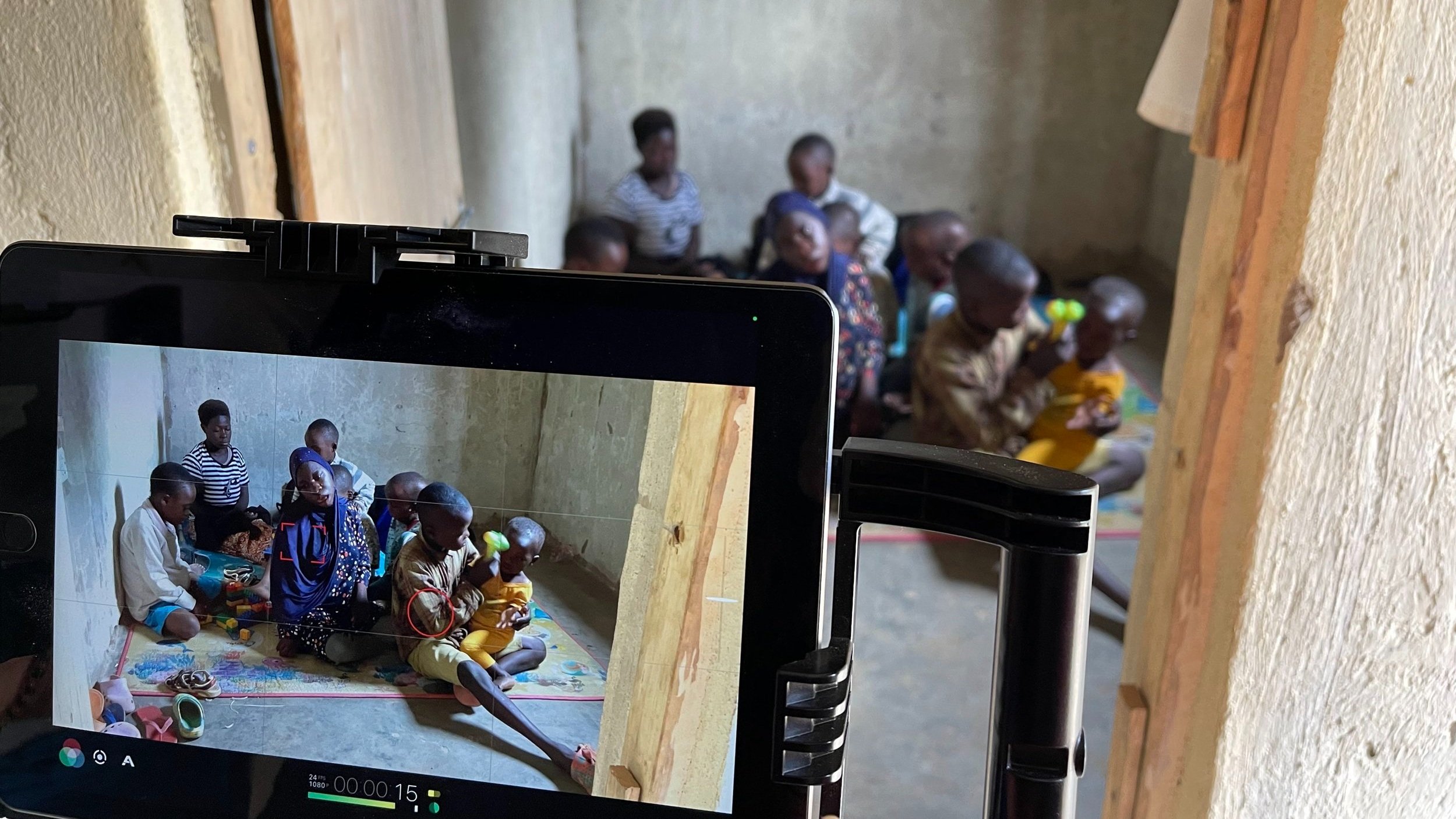Using video to enable meaningful participation of refugees in monitoring, evaluation and learning
It is not always easy to gauge or communicate people’s lived experiences of complex humanitarian issues. Those best positioned to explore and convey these messages are the affected communities themselves.
Participatory video is a set of techniques to involve a community in creating their own film to express their experiences. They can select relevant individuals to interview in their communities and decide how to represent themselves. This process can be very empowering, enabling a group or community to communicate their needs and ideas to decision-makers and drive improvements to their situation. This potential was illustrated by the use of participatory video in refugee-led monitoring, evaluation and learning (MEL) of a project in Uganda.
The project – Refugees: Innovation, Self-reliance & Empowerment (RISE) – aimed to promote financial inclusion for refugees by designing financial products that were specific to their needs (e.g. lack of documentation required to open a traditional bank account) and helping to de-risk lending for the bank (Opportunity Bank Uganda, in this case).
RISE was rolled out by Opportunity International UK (OIUK) in 2019 in Nakivale Refugee Settlement, south-west Uganda, where refugees are well-established (some second or third generation) and want to expand their livelihood opportunities. It was important that refugee voices fed into the process throughout, so OIUK worked with CDAC member InsightShare to use the participatory video and most significant change (PV MSC) technique as part of the project MEL.
Instead of MEL as an extractive exercise, participatory video can be a cathartic experience that supports self-confidence and critical consciousness
The community groups represented a vulnerable population; when OIUK first started the baseline evaluation, we expected that many would not want to share too much of their story, having endured trauma to make their way to the settlement. However, once one person took part, it sparked a ripple effect and soon everyone wanted to share – it was almost a form of catharsis.
MEL can often be an extractive exercise, designed by humanitarians to measure our own indicators. But when the question being asked is broad enough, when people are given a choice of how to express themselves – highlighting what they feel is important about their experiences – the storytelling process is a positive one that brings value to each individual, beyond the bounds of project MEL. The ability to share a story and feel heard supports a sense of self confidence and critical consciousness: our understanding of ourselves and our actions within the wider context of the social factors shaping our world.
Participatory video can help to build trust with communities and embed accountability to affected people
The groups re-visited for the midline evaluation were more confident about the process, having taken part in the baseline, and this helped to engage the new groups. Even when groups appeared initially quieter, they were soon eager to take part in dramatisations and even perform songs to include in their videos.
Using different storytelling methods – such as song and dramatising key aspects of the stories – ensures that everyone can participate in filming in a way that suits them. The process starts with creative exercises, including games, story circles to share and select stories, and storyboarding to unpack the stories. This helps everyone to feel at ease, be creative and enjoy the process (generally with lots of laughter too!). Learn more about the methodology in the InsightShare toolkit.
Another key factor in building trust is ensuring that the local evaluation team is predominantly people from the local community. They know the groups they are working with better than anyone else and know how to get them to open up. Not only does this close collaboration enable access to the community, but it also facilitates fast uptake of the resulting learning by local staff. The local evaluation team are now able to run an evaluation with minimal support and to help train others as this work expands into other settlements and new projects.
Screening events provide spaces to validate and verify data and close the feedback loop
The video medium also provides a natural opportunity to sense-check findings and to close the feedback loop by communicating analysis back to the community in the form of screenings.
Nakivale Refugee Settlement is a sprawling, rural area and some refugees had to travel miles to attend the community screening, so there were concerns that not many would show up. In the end, there was no need to worry: more than 150 people came to watch the six videos that had been filmed and to identify and analyse the key points from their perspective. The community groups were excited to see the end result of their participation and, importantly, felt validated that their voices had been captured in full.
“The entire InsightShare process is an empowering one for both the communities and the project team involved in it. The affected population had an opportunity to freely share their experiences and successes through drama, songs and storytelling. The refugee groups involved believe their voices were captured rightly and are excited to learn that appropriate programmes are being designed to address the challenges shared in the videos”
– Noah Ssempijja, Country Lead
From an OIUK perspective, the exercise was a key mechanism for connecting with the community, gaining insights into their experiences and ensuring that they felt heard. For Opportunity Bank Uganda, it helped emphasise the impact they are having on the community and identify opportunities to respond to their needs.
Watch the videos here:
Authors: Amanda Burrows, Senior Manager, Opportunity International UK (aburrows@opportunity.org), with support from Soledad Muñiz, Director of Programmes, InsightShare (smuniz@insightshare.org)



